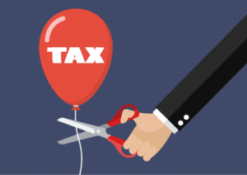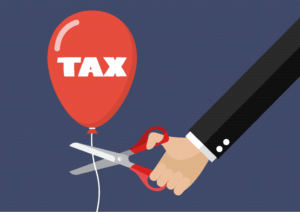
There are different reasons for HMRC debt. You may have tax arrears or have been overpaid tax credits. Going bankrupt could be a good way to resolve these problems.
Jump to article contents:
- Can HMRC debt be included in bankruptcy
- What about tax credit overpayment?
- Implications if your business has tax debt
Struggling with HMRC debt? Give us a call on 0800 077 6180 or complete the form below to speak to one of our experts.
Can HMRC debt be included in Bankruptcy
A common misunderstanding is that HMRC debt is treated differently to other debts. Tax debts are unsecured so they are included in Bankruptcy. They can be managed in exactly the same way as other debts such as credit cards or loans.
This is of particular significance to self-employed people and company directors who often build up large debts with HMRC. These could be in the form of self assessment tax arrears, VAT or debts arising from overturned tax management schemes.
Overpayment of tax credits is also an HMRC debt. This can be an issue which effects employed or self-employed people. These debts can get very large if an over payment of benefits has been going on for a long time.
If you go bankrupt HMRC debt is dealt with in the same way as any other unsecured credit. It is not treated preferentially.
What about Tax Credit overpayment?
Debt from overpayment of Working Tax Credit and Child Tax Credit is far more common than you might think. These benefits are means tested based on your income. Problems arise when people do not tell HMRC about a change in their circumstances.
This might be accidental, but if you have increased income or a change in family circumstances your tax credits may reduce. If you have continued to take the higher payment they will be clawed back later. Unchecked and unchanged for a year or more can result in a large debt to the HMRC. This can sometimes be thousands of pounds.
When this occurs the HMRC can reduce your ongoing tax credits to pay back the over payments. However if you go Bankrupt, the total over payment is included as a debt. So if your benefits were reduced to cover an over payment, your tax credits would increase back to normal levels.
The only time Tax Credits cannot be included in bankruptcy is where the debts are a result of fraud. This would have to be proved by a court.
HMRC have to accept your bankruptcy. This is not the case if you propose an IVA where they can refuse to accept the Arrangement.
Implications of Bankruptcy if your business has tax debt
If you are self employed you can go bankrupt to deal with any HMRC debt you owe. You can continue to work and keep any hand tools and a vehicle you need to run your business. However if you have stock or equipment used by others you will have to buy these back from the official receiver.
Where you have employees you will need to make them redundant on the day you go bankrupt. You can re-employ them the following day. You will also have to renew the lease if you are renting your business premises.
Using bankruptcy to resolve tax debts can be more of an issue if you are a company director. You would have to resign and work for the business as an employee. Alternatively you could close the company and continue to work as a sole trader.
If you are running a business and need further advice on bankruptcy complete the form below or give us a call to speak to one of our experts.
Arrange a call with a Bankruptcy Expert
Privacy Policy |


